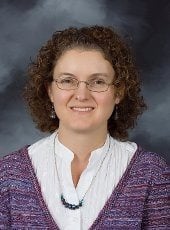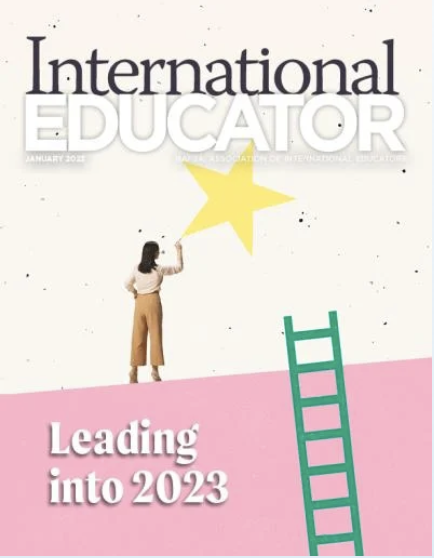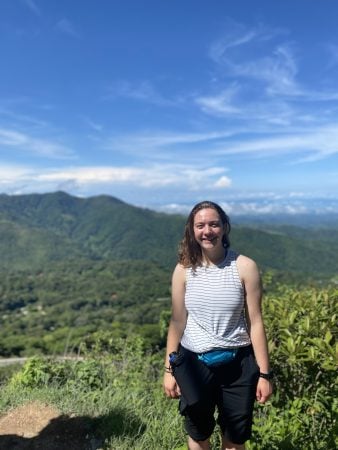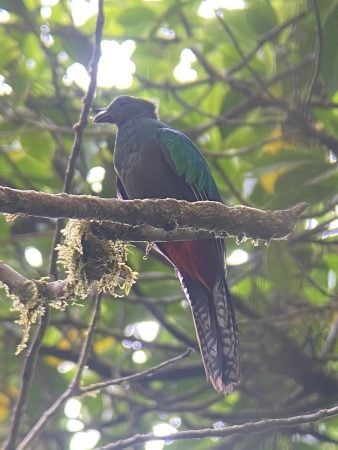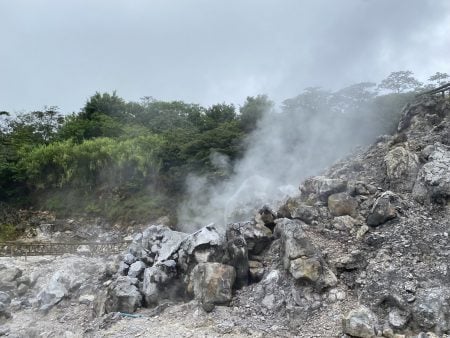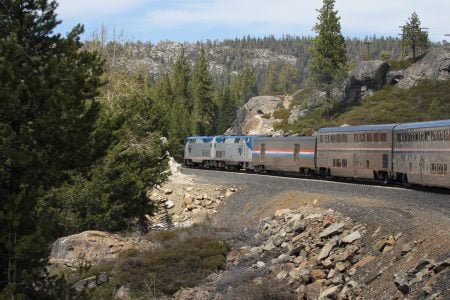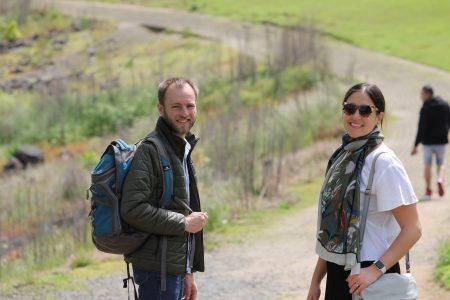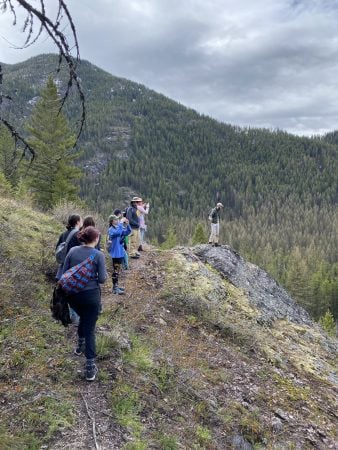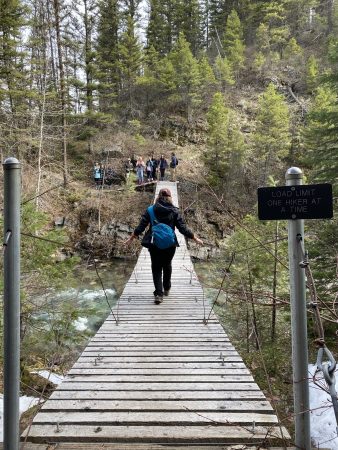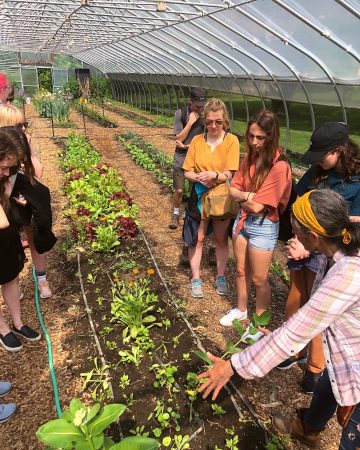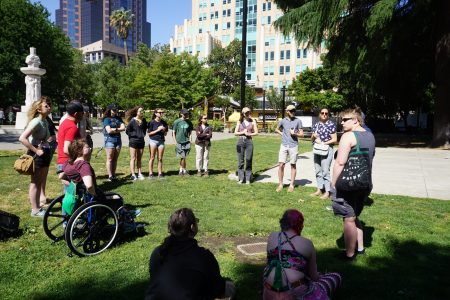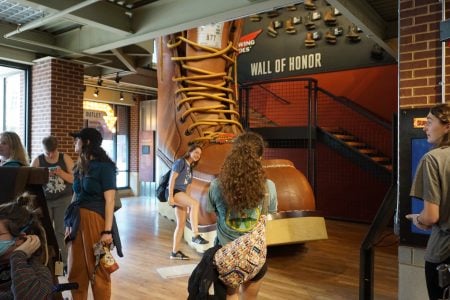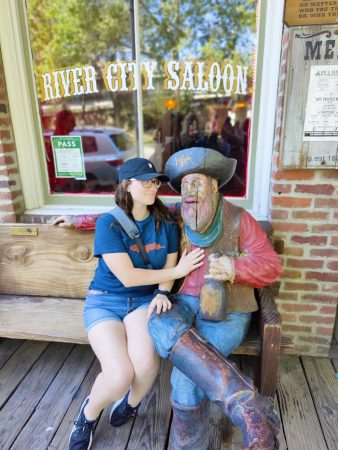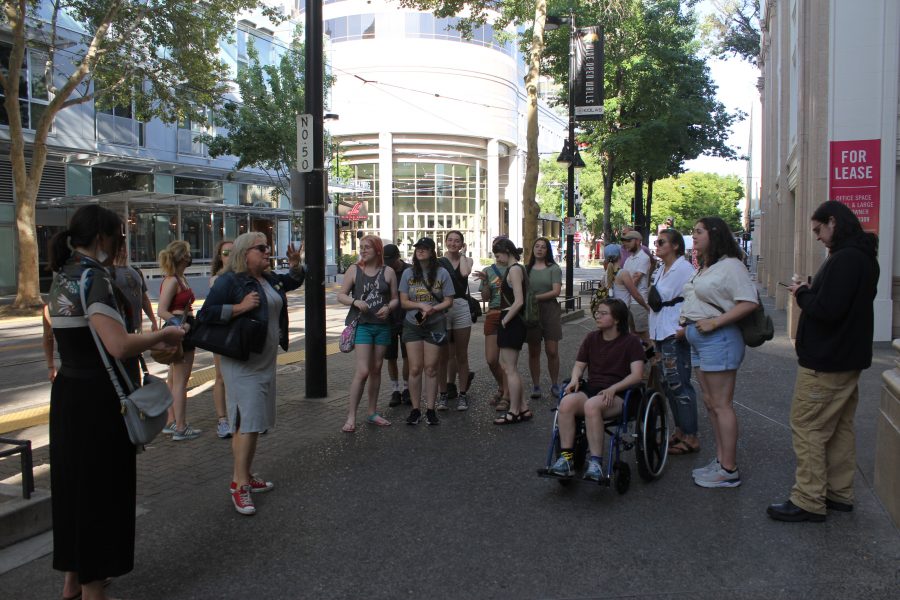Check out the latest happenings in the Department of Social Sciences via our weekly newsletter.
Looking for past issues? Check out our Newsletter Archive here.
Check out the latest happenings in the Department of Social Sciences via our weekly newsletter.
Looking for past issues? Check out our Newsletter Archive here.
Kari Henquinet is quoted multiple times by International Educator Magazine in the story “Leading from the Middle” in its January 2023 issue. Henquinet shares her experiences leading and advocating for international education programs in higher education in the story, which discussed effective strategies for mid-level leaders in higher ed. Mid-level staff can be effective leaders—even when they lack official authority or decision-making power.
Among her quotes:
Kari recommends that middle managers “try to cultivate relationships with influential people in your institution—people who have the ear of the upper administration or get to sit at the table for decisions that are made,” she says. “Pay attention to new initiatives, strategic plans, trends in higher education, so that you can get involved and support these on your campus in a way that positively impacts international education.”
When asked about mid-level managers, Kari says, ““These are people who have a measure of humility and listen for new perspectives and information. They will step up to do the hard work of researching and proposing ideas that are based on sound policies, facilitate complex conversations, and get buy-in or constructive criticism through each step of the process.”
They “communicate their work and results clearly and widely to draw attention to their contributions,” Henquinet said. “There is often a lot of good work that goes unnoticed in international education. The more a leader can make this work a point of pride and prestige for their institution, the better the chances are for more support and recognition.”
On what motivates her to be a leader: “It is usually the students who ultimately give me that motivation to be a leader,” says Henquinet. “I want them to have the opportunities to develop diverse relationships, find support networks while in a new place, build confidence speaking a second or third language, and know the power of experiential learning through study abroad, research and professional experiences.”
Michigan Tech’s Department of Social Sciences offers bachelor of science degrees in Anthropology, Policy and Community Development, Sustainability Science and Society, and Social Science, along with a bachelor of arts degree in History. Our graduate program includes masters and doctoral degrees in Environmental and Energy Policy and Industrial Heritage and Architecture (the only one of its kind in the world), and a masters in Sustainable Communities. Plus, you can get a graduate certificate in Public Policy in by taking three courses in just one term.
Questions? Contact us at socialsciences@mtu.edu. And follow us on Facebook, Instagram and Twitter for the latest happenings.
Dr. Angie Carter and her co-author Dr. Rebecca Christoffel have published “Supporting Women Landowners in Wetland Conservation” in Society & Natural Resources. The article analyzes data from a state-wide survey in Iowa and finds that a lack of experience with and misinformation about wetlands, coupled with a lack of access to needed conservation knowledge networks, limits conservation action for women landowners, no matter their age cohort.
Melia Austin immerses herself in her learning. One example: is a trip to Costa Rica during the summer of 2022 with fellow Michigan Tech students interested in sustainability. Building on what they learned at Michigan Tech, they observed what Costa Rica has done to become more sustainable in terms of environment, ecology, water treatment, and more. Plus, Melia immersed herself in the Costa Rican community, where she practiced her Spanish and earned credits toward her minor in Spanish.
Melia said, “I wanted to use what I’ve learned in my Spanish classes to grow in my understanding of the world, and learn about sustainability inside and outside of the classroom.” Day trips around Costa Rica greatly enhanced her learning.
Immersed in Sustainability
The day trips brought sustainability to life. A visit to a natural hot spring showed how Costa Ricans benefit from this sustainable form of energy. They also hiked through a sustainable forest where they saw a quetzal. This is a rare bird found in Costa Rica. Sustainable forests give species like the quetzal places to thrive. The forest was not only environmentally sustainable, but also socially, and economically sustainable. As a result, Costa Rica is able to identify and manage the impacts of businesses and people on the environment and adjust accordingly to be sustainable. She noted that the rainforest and its management met the criteria of the three pillars of sustainability that they learned about in their classes.
There were lots Melia enjoyed during her time in Costa Rica. Melia’s favorite thing was “attending a conference about sustainability with graduate students and professors from different universities.” She was able to diversify her learning about sustainability by connecting with others from different universities. This enhanced her experience as she immersed herself in new opportunities to learn about sustainability.
Study Abroad Takeaways From Melia
When asked what advice she would give to students considering studying abroad she said, “You are at a unique point in your life where you have the freedom and autonomy to travel and learn new things that might change how you see the world. It might even change your future plans.” In Costa Rica, she learned to be independent and travel independently. She is applying those learnings in a gap year in Senegal where she volunteers on a hospital ship. Immersing herself in Senegalese culture and the hospital environment, her goal is to gauge her interest in a career in medicine.
Learn about Melia and the other Michigan Tech students’ experiences in Costa Rica on the Costa Rica blog. Michigan Tech offers a number of study-abroad options in Costa Rica, Cumbria, Mexico, and Wales.
Last summer, 18 Michigan Tech students boarded a train. They spent 18 days traversing the US practicing and learning about sustainable tourism. Amtrak Study Away directors Mark Rhodes, assistant professor of geography and heritage, and Kathryn Hannum, teaching assistant professor and Policy and Community Development advisor for the Department of Social Sciences, helped the students navigate the US passenger rail service off and on across 6 different cities.
For 20 days, students solely utilized public transit to explore the concepts of sustainable tourism and planning, landscape analysis, and urban deindustrialization. They spent two nights in independently-run hotels across each of the 6 stops and cities along the Empire Builder and California Zephyr Amtrak routes. Students saw firsthand how tourism has been incorporated and resisted from national parks to major metros, to deindustrialized small towns. Students frequently met with city planners, government officials, urban and sustainability studies scholars, and stakeholders in the heritage and hospitality industries.
“Amtrak is a great means for students to learn that not all places see tourism as a net gain. Some places, especially our national parks like Glacier are beginning to combat overtourism. Our students get to speak to local stakeholders to understand many different perspectives on tourism and sustainability,” Rhodes said.
The Community/Real World is the Classroom
In creating the Amtrak program, Rhodes drew inspiration from other geographers who suggest we need more community-based learning field experiences. Much of Rhodes’s thinking comes from Houston and Lange who aim to destabilize the idea of the “real world/campus and field/classroom” in favor of a more co-constructive and integrated learning experience. Rhodes was able to bring the program to fruition through funding from Michigan Tech’s Next-Gen Gen-Ed, the Institute for Sustainabilty and Resilience, and the Department of Social Sciences.
“It is exciting to give our students a truly immersive and hands-on experience. On the Amtrak program, classes were held on the train, in hotel lobbies, in restaurants, and in actual classrooms. Simultaneously, those spaces functioned as a living laboratory for engaging fieldwork. And the train serves as a mobile dormitory, with dining, recreational, and sleeping areas,” Rhodes said. “Interactions with communities were in dialogue, not scientific observation or one-way explanations. Students brought those experiences, observations, and perspectives back to campus and the Keweenaw via a public event. Students presented key findings, engaged in Q&A, and discussed ideas for how the UP can benefit from tourism, if done sustainably.”
“Being able to compare many different cities, places, and environments in such a short period of time was eye-opening,” said Nick Hatley, an Amtrak Study Away participant and mechanical engineering major. “It was also my first time on a train. It was a unique travel experience.”
Sustainability Science in Society
The Amtrak Study Away program offered other unique opportunities for students. Of the 18 students, three students presented on the possibilities of study away and Amtrak within the realm of sustainability and equity at the Global and Community Engagement conference. Four students will travel to the Annual Meeting of American Association of Geographers in Denver, Colorado to sit on a domestic study away experience panel while also presenting their original research.
The Amtrak Study Away program changed perceptions too. Following the program, 87% of the students stated their perception of public transit changed positively. Post-trip, students responded with a 4.6/5 that they were “extremely likely” to “seek out public transit in the future” and that they were also “extremely likely” (4.7/5) to ride Amtrak again.
All-Aboard for Amtrak Study Away 2023
Applications are now open for Amtrak Tourism 2023 (application and deposit deadline is January 13, 2023), where students can pay just $1000, plus tuition, and experience 6 unique landscapes and many tourism, sustainable planning, and governmental organizations. Program fees include all lodging, transportation, activities (such as a Portland Thorns soccer game, a Local Roots food tour, and the Glenwood Springs hot spring). Students will hike Glacier National Park, help keep Portland Weird, and receive a tour of Knox Farm’s sustainable urban agriculture. Follow all the Amtrak Study Away program exploits from 2022 on Instagram. Reach out to Mark Rhodes with questions.
About the Social Sciences Department
Social Sciences at Michigan Technological University helps students apply academic concepts to real-world issues. We use tools from anthropology, geography, history, political science, and sociology to help find sustainable solutions to complex problems. The department offers five undergraduate degrees, five graduate degrees, and one graduate certificate program in public policy. Regardless of the path you choose, our faculty will help you lay the foundation for a meaningful career.
Check out the latest happenings in the Department of Social Sciences via our weekly newsletter.
Dr. Angie Carter has published an article–“Intersections between food justice and rural studies in the U.S.: Some implications for today and the future”–on the importance of strengthening connections between rural studies and food justice with co-author Dr. Diego Thompson (Mississippi State) in Food, Culture, & Society.
Check out the latest happenings in the Department of Social Sciences via our weekly newsletter.
Dr. Hongmei Lu (departmental alum, PhD EEP 2020, now a postdoctoral researcher at Utrecht University, Netherlands) and Dr. Angie Carter have published “Emergent regional collaborative governance in rural local food systems development” in Community Development. The paper analyzes emergent regional collaborative governance in the Western UP’s rural food system and is a product of Dr. Carter’s REF award. The article is available open access here.
